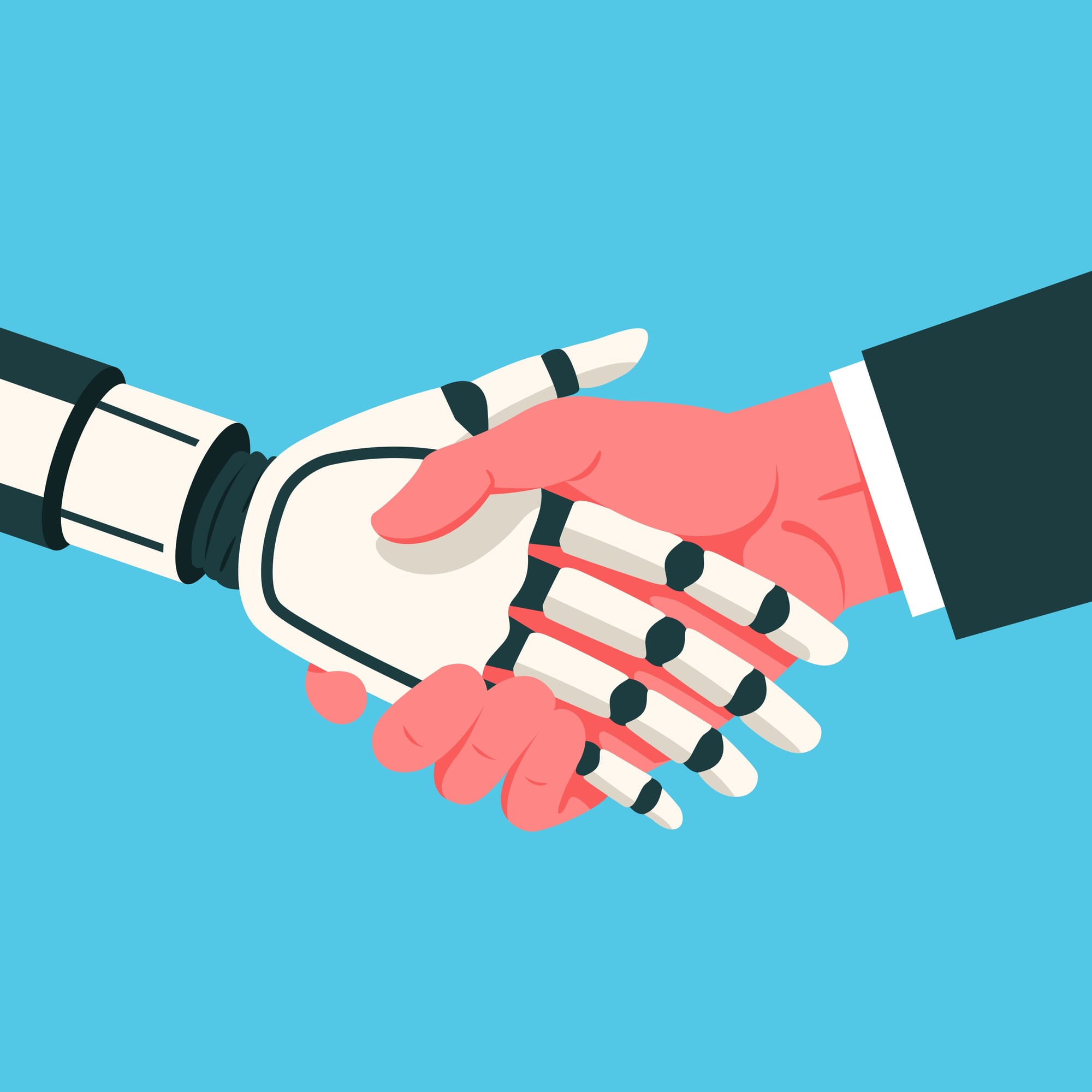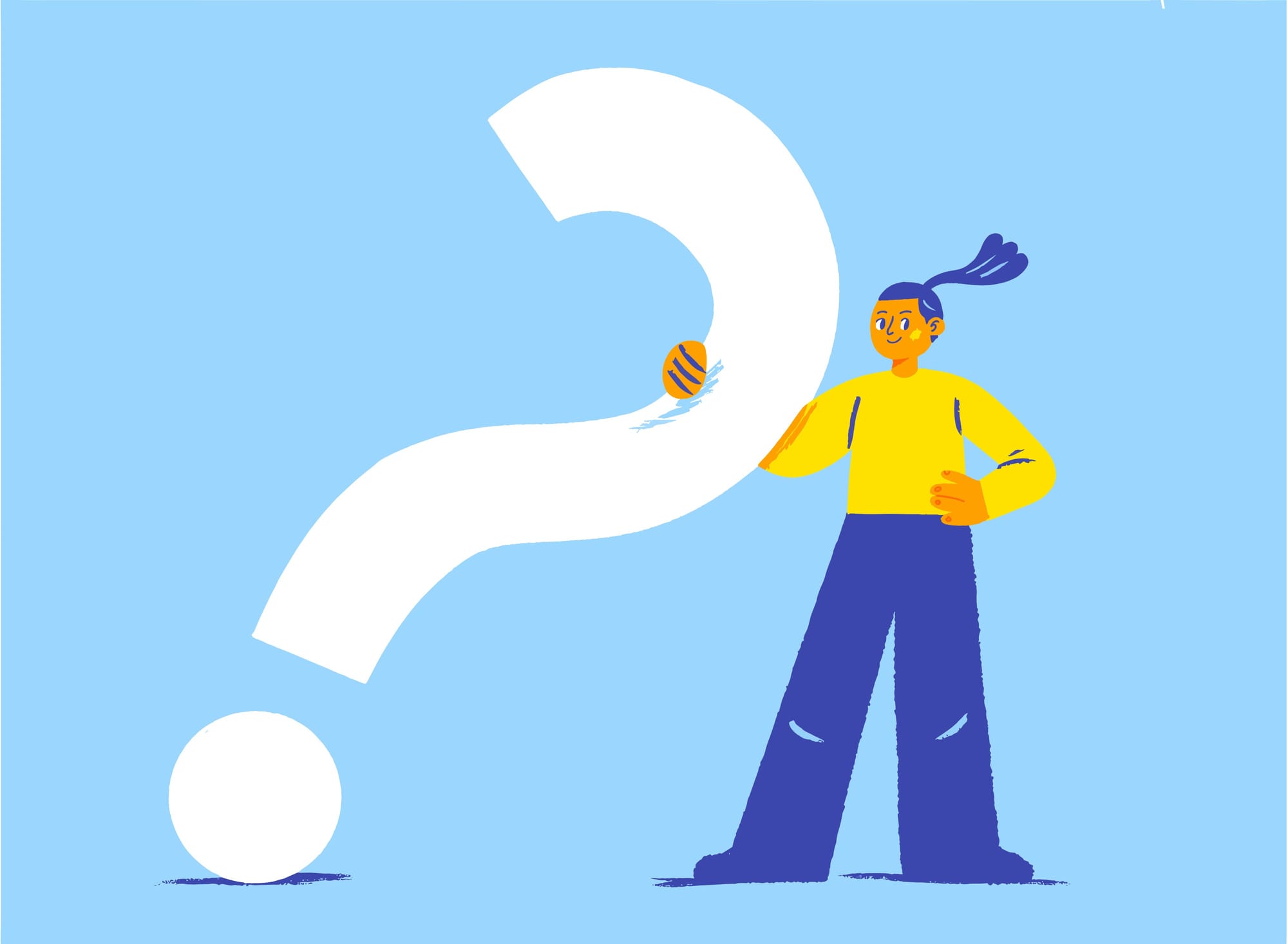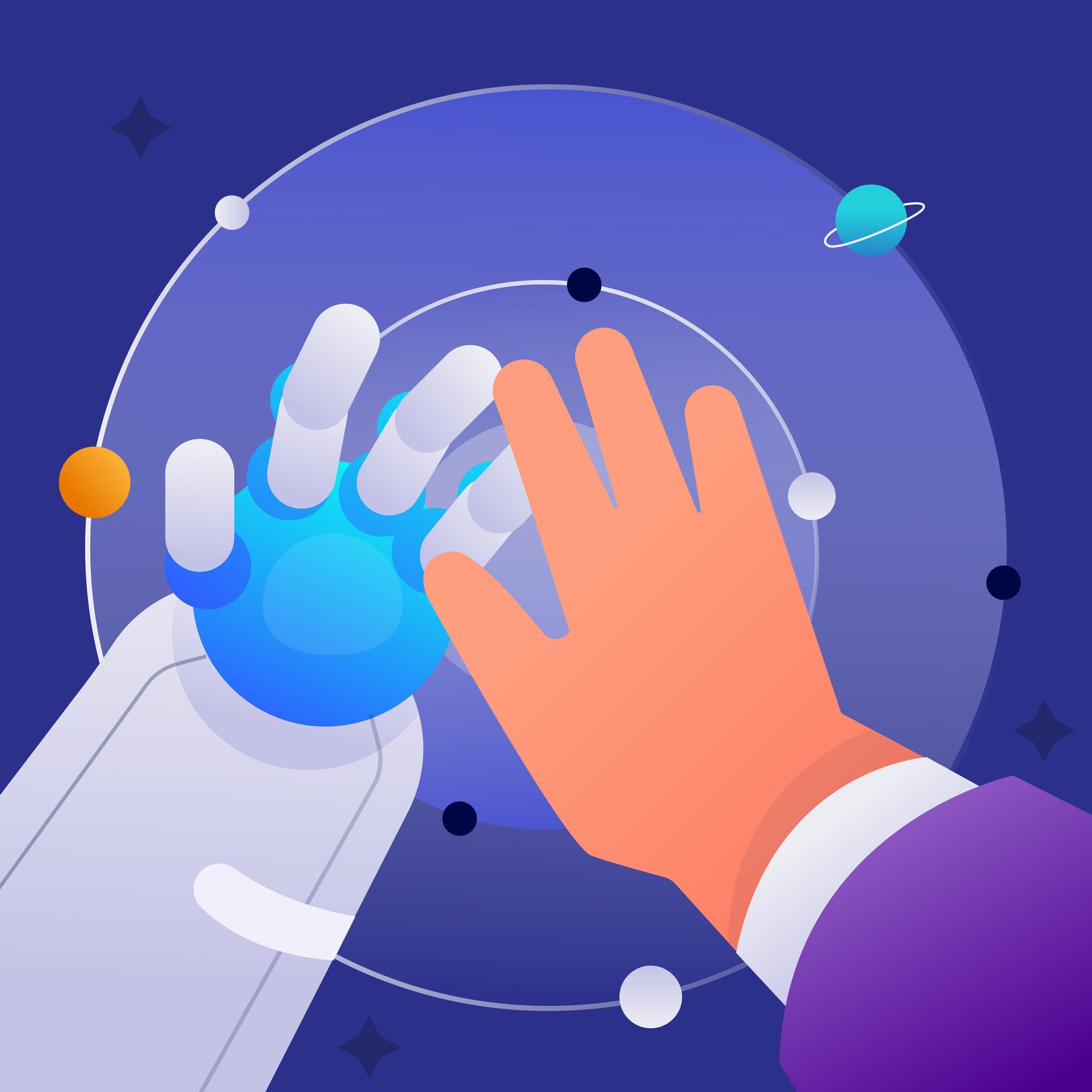The question keeps recruiters up at night: will AI take their jobs? Walk into any HR conference today, and you'll hear the same concerns. Some see headlines about 88% of companies using AI in hiring and wonder if they're next. Others watch AI screen thousands of resumes in minutes (work that once took weeks) and feel the ground shifting beneath them.
Here's what the data actually shows. AI is transforming recruitment, but not in the way most people think. The 65% of recruiters already using AI aren't being replaced. They're being freed up to do what they do best. While AI handles resume screening and interview scheduling, human recruiters build relationships, assess cultural fit, and make the final hiring decisions that determine whether someone succeeds at your company.
This isn't a story about robots stealing jobs. It's about how the smartest hiring teams are combining AI's speed with human judgment to build better teams faster.
Will AI Replace Recruiters?
The short answer: no. But the role is changing fast.
A recent study from 500 business leaders found that 70% of companies use AI to reject candidates without human oversight. That sounds alarming until you realize what AI is actually rejecting: applications that don't meet basic job requirements, duplicate submissions, and resumes from candidates clearly unqualified for the role.
What AI isn't replacing: the strategic thinking, relationship building, and nuanced judgment that makes great recruiters invaluable. Consider what happened at Goldman Sachs in 2024. They received 315,126 applications for their internship program. No human team could effectively review that volume. AI narrowed the pool to qualified candidates. Human recruiters then assessed cultural fit, communication skills, and growth potential (things AI can't reliably measure).
The data from MIT Sloan's research confirms this pattern. AI complements human workers rather than replacing them. The most successful implementations don't remove humans from the process. They amplify human judgment by handling routine tasks and surfacing insights that might otherwise be missed.
Here's what's actually happening in recruitment:
What AI Does Well: Resume screening (80%+ efficiency improvement), candidate sourcing at scale, scheduling and logistics, basic qualification matching, and data analysis across thousands of applications.
What Humans Do Better: Assessing cultural fit, evaluating soft skills and communication style, understanding career motivations, selling the opportunity to top candidates, making nuanced judgment calls on borderline cases, and building long-term talent relationships.
The World Economic Forum's 2025 report found that 86% expect AI and information processing to transform their business. But only 31% of recruiters believe AI will ultimately replace hiring decisions. That 54-point gap tells the real story: AI automates tasks, not jobs.
What Is an AI Interview?

AI interviews have evolved far beyond the clunky chatbots of five years ago. Today's systems conduct structured conversations that assess both technical skills and communication abilities.
A typical AI interview works like this: candidates receive a link to complete an interview at their convenience. The AI asks pre-set questions designed to evaluate specific competencies (some can be conversational too). As candidates respond, the system analyzes their answers for relevant skills, experience indicators, and communication clarity. Some platforms record video responses; others use text-based conversations.
Companies like Target, Johnson & Johnson, and JP Morgan use AI interviews for high-volume hiring. The reason is simple: they need to screen thousands of candidates efficiently while maintaining consistent evaluation standards.
But here's what makes modern AI interviews different from earlier versions: they're getting better at their job. Stanford researchers compared traditional resume-based screening against AI-led interviews in a 2024 study. Candidates who underwent AI-led interviews succeeded in subsequent human interviews at a 54% rate compared to just 34% for candidates selected through traditional resume screening.
That 20-point difference matters. It means AI interviews do more than save time. They identify qualified candidates who might have been overlooked based on resume alone.
The technology works through natural language processing and machine learning algorithms. When you answer a question about handling tight deadlines, the AI isn't just checking for keywords. It analyzes sentence structure, identifies concrete examples, and then assigns an unbiased score.
Types of AI Interviews in Use Today
Asynchronous Video Interviews: Record responses to preset questions on your own time. AI analyzes content, delivery, and contextual relevance.
Conversational AI Interviews: Live video conversations that adapt questions based on the candidate's responses, similar to messaging with a recruiter.
Most companies use AI interviews for initial screening, not final decisions. A recruiter at one of Equip's enterprise clients explained their process: "AI handles the first 500 applications, identifies the top 50 based on skills and experience, then our team conducts video interviews with the final 15. We went from spending three weeks on screening to three days, without sacrificing quality."
AI Interview Accuracy: What the Data Shows
Accuracy is where AI interviews get interesting and controversial.
The optimistic view: AI reduces hiring costs by 30% per hire and increases revenue per employee by 4%, according to recruitment efficiency studies. Organizations using AI report 40% reductions in time-to-hire. These aren't marginal improvements. They're game-changing for companies that need to scale quickly.
More importantly, AI-picked candidates are 14% more likely to pass subsequent interviews and 18% more likely to accept job offers. Those numbers suggest AI is identifying genuinely qualified candidates, not just processing applications faster.

But accuracy depends entirely on what you're measuring. AI excels at evaluating hard skills, technical knowledge, and whether candidates meet basic job requirements. Where it struggles: assessing soft skills, understanding context, and reading between the lines on unusual career paths.
Consider this scenario from a talent leader at a Series B startup using Equip: "We had a candidate who spent five years as a teacher before transitioning to software development. Traditional resume screening flagged her as 'underqualified' because her tech experience was recent. AI interview questions about problem-solving and handling pressure? She scored in the 90th percentile. We hired her. She became one of our best engineers."
That's where AI accuracy reveals its complexity. The system was accurate about her problem-solving skills and communication abilities. But without the right questions and scoring criteria, it might have missed what made her valuable.
The Consistency Advantage
Perhaps AI's biggest accuracy advantage isn't speed. It's consistency. When quality was assessed across AI-conducted interviews versus human-led interviews, AI showed significantly lower variation in question quality and conversational dynamics. Every candidate gets the same structured evaluation, eliminating the problem where morning interviews go smoothly but late afternoon sessions feel rushed.
A CHRO at a 5,000-person manufacturing company shared this insight: "Our human recruiters were excellent, but their interview quality varied based on workload, time of day, and which hiring manager was pressuring them. AI doesn't have good days and bad days. Every candidate gets evaluated against the same standards."
AI Interview Performance: Key Metrics
| Metric | AI Performance | Traditional Method | Source |
|---|---|---|---|
| Interview pass rate | 53.12% | 41.18% | Stanford, 2024 |
| Offer acceptance rate | +18% higher | Baseline | Forbes, 2024 |
| Time-to-hire reduction | 40% | Baseline | LinkedIn, 2024 |
| Cost per hire reduction | 30% | Baseline | Zippia, 2024 |
| Interview consistency score | Low variation | High variation | Stanford, 2024 |
AI Bias in Hiring: The Real Concerns
This is where optimism about AI hits reality. The promise of unbiased hiring? It's more complicated than vendors want you to believe.
AI can reduce bias. But it can also amplify it. The difference comes down to training data, system design, and human oversight.
Start with the sobering facts. A 2024 University of Washington study found that massive text embedding models showed bias in 85.1% of cases favoring white-associated names, and only 11.1% favored female-associated names. Black male candidates were disadvantaged in up to 100% of cases. These aren't small discrepancies. They're systematic patterns that could disqualify qualified candidates at scale.
The problem compounds when humans review AI recommendations. In controlled experiments where participants reviewed candidates with AI assistance, they mirrored the AI's biases. When AI showed moderate bias toward certain demographic groups, human reviewers did too. The systems we think provide checks and balances may just be amplifying algorithmic discrimination.
Real-World Legal Cases
The legal system is catching up. CVS settled a 2024 class action lawsuit over AI interviews that allegedly measured "conscientiousness and responsibility" through facial expression analysis. The ACLU filed complaints against hiring platforms, claiming they discriminated against deaf and non-white individuals. A lawsuit against Workday survived motion to dismiss, alleging systematic discrimination through AI screening tools.
These aren't edge cases. They're warnings about what happens when companies deploy AI without rigorous testing and monitoring.
Where Bias Comes From
AI doesn't create bias. It learns it. When Amazon built an AI recruiting tool trained on ten years of resumes, the system learned to penalize resumes that included words like "women's chess club" because most historical hires had been men. The company scrapped the tool.
That's the first source: historical data. If your past hiring reflected biases (conscious or not), AI trained on that data will reproduce those patterns.
The second source: design choices. When facial expression analysis became part of AI interviews, disabled candidates faced systematic disadvantages. The algorithm couldn't account for mobility impairments or communication differences that had nothing to do with job performance.
The third source: proxy variables. Even when you remove demographic information, AI can find proxies. College attended, neighborhood zip codes, gaps in employment: all can correlate with protected characteristics. Sophisticated algorithms identify these patterns whether you want them to or not.
The Path to Fairer AI

The solution isn't abandoning AI. It's implementing it responsibly. Organizations seeing improved diversity outcomes through AI share common practices:
Regular bias audits: Some governments mandate annual bias audits for automated employment decision tools. Forward-thinking companies audit more frequently even if their local governments do not enforce it.
Diverse training data: A Gartner report found that AI-driven hiring models can reduce bias by up to 40%. But only when regularly audited and trained on diverse, representative datasets.
Human review for edge cases: 80% of Equip's customers using AI features say they don't reject applicants without human review. That final check catches algorithmic errors.
Transparent methodology: Companies that explain how their AI makes decisions build more trust and catch problems faster.
One Head of Talent at a fintech using Equip noted: "We run quarterly audits comparing AI screening results across demographic groups. Our diverse hiring rates have improved 35% since we started monitoring closely."
AI Bias Risk Factors
| Risk Factor | Impact | Mitigation Strategy |
|---|---|---|
| Historical data bias | Reproduces past discrimination patterns | Audit training data; use diverse datasets |
| Facial analysis algorithms | Disadvantages disabled candidates | Avoid or provide alternative assessments |
| Proxy variables | Indirect discrimination via location, education | Monitor correlation with protected attributes |
| Accent/speech patterns | Penalizes non-native speakers | Test across diverse speech patterns |
| Lack of human oversight | Algorithmic errors go unchecked | Require human review of edge cases |
Key Finding: Organizations that implement all five mitigation strategies see 61% reduction in gender bias and 61% reduction in racial bias (Source: Fairness in AI-Driven Recruitment, 2025)
Human vs AI: What Recruiters Do Better

Strip away the hype, and the division of labor becomes clear. AI wins on speed and consistency. Humans win on judgment and relationship building.
Here's what that looks like in practice:
Reading Between the Lines
A resume shows a candidate spent five years at one company, then moved to three different roles in three years. AI might flag this as job-hopping instability (Equip's Resume Screening does not). A skilled recruiter asks questions and discovers: the first company was toxic, the candidate made a strategic pivot to learn new skills across different environments, and they're now ready to commit long-term to the right opportunity.
That contextual understanding changes everything. AI processes the data it's given. Recruiters understand the human story behind the data.
Assessing Cultural Fit
Your startup values move-fast-and-iterate chaos. A candidate has thrived at structured enterprises with clear hierarchies. Will they succeed in your environment? AI can match skills to job descriptions. Only humans can assess whether someone's working style aligns with your actual culture (not the aspirational culture in your job posting).
A VP of People at a 300-person startup explained: "AI gives us the top 20 candidates based on skills. Then we evaluate: will they thrive in ambiguity? Do they need mentorship or prefer autonomy? Can they influence without authority? These questions require human judgment."
Selling the Opportunity
Top candidates often evaluate multiple offers. What makes them choose you over a competitor offering more money? Not AI-generated emails about "exciting opportunities" and "cutting-edge technology."
It's the recruiter who understands your career trajectory, explains how this role fits into your five-year plan, connects you with future teammates who share your interests, and paints a compelling picture of what your first 90 days could look like.
BCG research found that 52% of candidates would decline an otherwise attractive offer after a negative recruiting experience. That's the human touch (or lack of it) driving decisions worth millions in talent acquisition.
Negotiating Complex Situations
A candidate wants 30% more than your budget allows but has exactly the niche expertise you need. An AI can't negotiate creative solutions. A skilled recruiter explores: would equity offset lower base salary? Could remote work flexibility compensate? Is there a title adjustment that matters more than money?
These conversations require empathy, creativity, and understanding what people actually value beyond the numbers on an offer letter.
Building Long-Term Relationships
Great recruiters don't just fill today's open role. They build talent networks that pay dividends for years. The "not right now" conversation that turns into a perfect hire 18 months later. The placed candidate who refers three friends. The rejected applicant who remembers being treated well and applies again.
These relationships form the foundation of sustainable talent acquisition. AI helps you manage contacts and track interactions. It can't build genuine trust.
AI vs Human Recruiters: Capability Comparison
| Capability | AI Performance | Human Performance | Best Approach |
|---|---|---|---|
| Resume screening at scale | Excellent | Fair | AI-led with human spot checks |
| Assessing cultural fit | Poor | Excellent | Human-led exclusively |
| Technical skills verification | Excellent | Excellent | AI screening, human validation |
| Interview scheduling | Excellent | Fair | AI-automated completely |
| Reading soft skills | Poor | Excellent | Human-led exclusively |
| Candidate relationship building | Poor | Excellent | Human-led with AI support |
| Data analysis and insights | Excellent | Fair | AI-generated, human-interpreted |
| Offer negotiation | Poor | Excellent | Human-led exclusively |
| Understanding career context | Poor | Excellent | Human-led exclusively |
Key Insight: The most effective recruitment strategies use AI for automation and data processing while reserving human judgment for relationship-building and complex decision-making.
The Future of AI in Recruitment
Look five years ahead, and the trends become clear. AI isn't replacing recruiters. It's redefining what they do.
The numbers tell part of the story. By 2027, 81% adoption of AI in recruitment. By 2030, 94% of recruitment processes will incorporate AI. The AI recruitment industry will grow from $661.56 million in 2023 to $1.12 billion by 2030. These aren't predictions about whether AI becomes standard. They're projections about how quickly it spreads.
What's Coming Next
More sophisticated evaluation: Current AI interviews assess technical skills and basic communication. Future systems will analyze problem-solving approaches, evaluate learning agility, and predict cultural fit more accurately. Companies are already working on AI that can assess emotional intelligence with 67% planned adoption by 2030.
End-to-end automation for routine roles: By 2025, 60% of organizations will use AI for end-to-end recruitment processes in high-volume, clearly defined roles. Customer service, entry-level sales, junior developer positions: roles with consistent requirements and large applicant pools.
Hybrid models become standard: The companies seeing best results use AI for initial screening and humans for final decisions. This model will become the default, with more candidates preferring human interaction for final hiring decisions even as they accept AI in earlier stages.
Regulatory frameworks tighten: The EU AI Act's obligations for general-purpose AI began in August 2025. New York City requires annual bias audits. More jurisdictions will regulate AI hiring tools, forcing companies to demonstrate fairness and maintain transparency.
Explainable AI emerges: Current AI operates as a black box (you get results but limited understanding of why). Future systems will explain their decisions, showing which factors influenced candidate rankings and allowing recruiters to validate the logic.
The Recruiter Role Evolves
Future recruiters will spend less time screening resumes and more time on:
Talent strategy: Which skills will your company need in 18 months? Where should you build talent pipelines? How can you create career paths that reduce turnover?
Candidate experience design: How do you create hiring processes that attract rather than deter top talent? What touchpoints matter most? Where can automation improve the experience versus where it damages relationships?
Employer brand development: What story draws the candidates you need? How do you differentiate in competitive markets? AI can distribute your message. Humans create the compelling narrative.
Complex stakeholder management: Educating hiring managers on realistic candidate availability, negotiating with executives on compensation bands, aligning multiple decision-makers around hiring criteria.
One talent leader at a unicorn startup described it this way: "AI freed me from spending 60% of my time on administrative tasks. Now I spend that time building relationships with the candidates who could transform our company. The ones worth flying to meet in person, the ones who need convincing our opportunity is special. That's where I add value. AI helps me focus there."
The AI Adoption Challenge
Despite the obvious benefits, adoption isn't universal. Organizations struggle with data infrastructure, internal training, vendor management, and change management.
AI anxiety among recruiters is real. Many worry about job displacement. The solution isn't denying those concerns. It's retraining teams to work alongside AI rather than compete with it.
Companies that invest in reskilling see better outcomes. When teams understand what AI can do, they use it more effectively. When they know their judgment remains critical, they stop resisting and start collaborating.
What This Means for Your Hiring
The strategic question isn't whether to use AI. It's how to use it thoughtfully. Organizations getting this right share common patterns:
Start narrow: Implement AI for clearly defined use cases (resume screening for high-volume roles) before expanding to complex scenarios.
Maintain human oversight: Every AI decision should have a human review path for edge cases and appeals.
Monitor for bias continuously: Quarterly audits comparing outcomes across demographic groups, with quick adjustments when disparities emerge.
Be transparent with candidates: A 2024 LinkedIn report found 68% of candidates are comfortable with AI in hiring, but only if it's used transparently. Over 50% find it frustrating when they're unsure whether they're interacting with human or AI.
Invest in recruiter training: Your team needs to understand AI capabilities, limitations, and how to interpret AI-generated insights.
Making AI and Humans Work Together
The companies winning at modern hiring aren't choosing between AI and human recruiters. They're combining both strategically.
A practical example from a Head of Talent Acquisition at a 2,000-person company using Equip's platform:
"We implemented AI screening for our engineering roles. Applications jumped from 200 to 800 per position when we posted on new job boards. Our team couldn't manually review that volume without sacrificing quality.
Here's our process now: AI screens all applications for basic requirements (relevant degree or experience, technical skills match, location preference). That cuts the pool to 150 candidates. AI conducts initial 15-minute interviews asking technical questions and behavioral scenarios. Candidates who score 70%+ move forward. That's usually 40-50 people.
Our recruiters then review those 40-50 candidates, watching excerpts from AI interviews flagged as particularly strong or concerning. They select 15 for technical round, focusing on cultural fit, communication style, and career trajectory. After phone screens, 5-8 candidates meet the hiring team.
The result? We filled roles 40% faster while improving quality of hire. Our six-month retention rate went from 87% to 93%. And our recruiters spend time on what matters: building relationships with finalists, coaching hiring managers, and improving our employer brand."
The Bottom Line
Are AI interviews replacing human recruiters? The data says no, but they're fundamentally changing what recruiters do.
AI handles the volume. It screens resumes faster than any human could, conducts initial interviews at scale, identifies qualified candidates from massive applicant pools, and provides data-driven insights about hiring patterns.
Humans handle the judgment. They assess cultural fit and communication style, build relationships that convince top candidates to join, make nuanced decisions on borderline cases, negotiate complex offers, and provide the strategic thinking that determines who succeeds long-term.
Organizations that grasp this distinction will build better teams faster than competitors still debating whether to adopt AI at all. The question isn't whether AI will transform recruitment. It's whether you'll transform along with it.
For companies looking to implement AI thoughtfully, platforms like Equip offer comprehensive solutions that balance automation with human oversight. They provide AI-powered resume screening, skills assessments, and interview tools at $1 per candidate while keeping human recruiters in control of the decisions that matter most.

